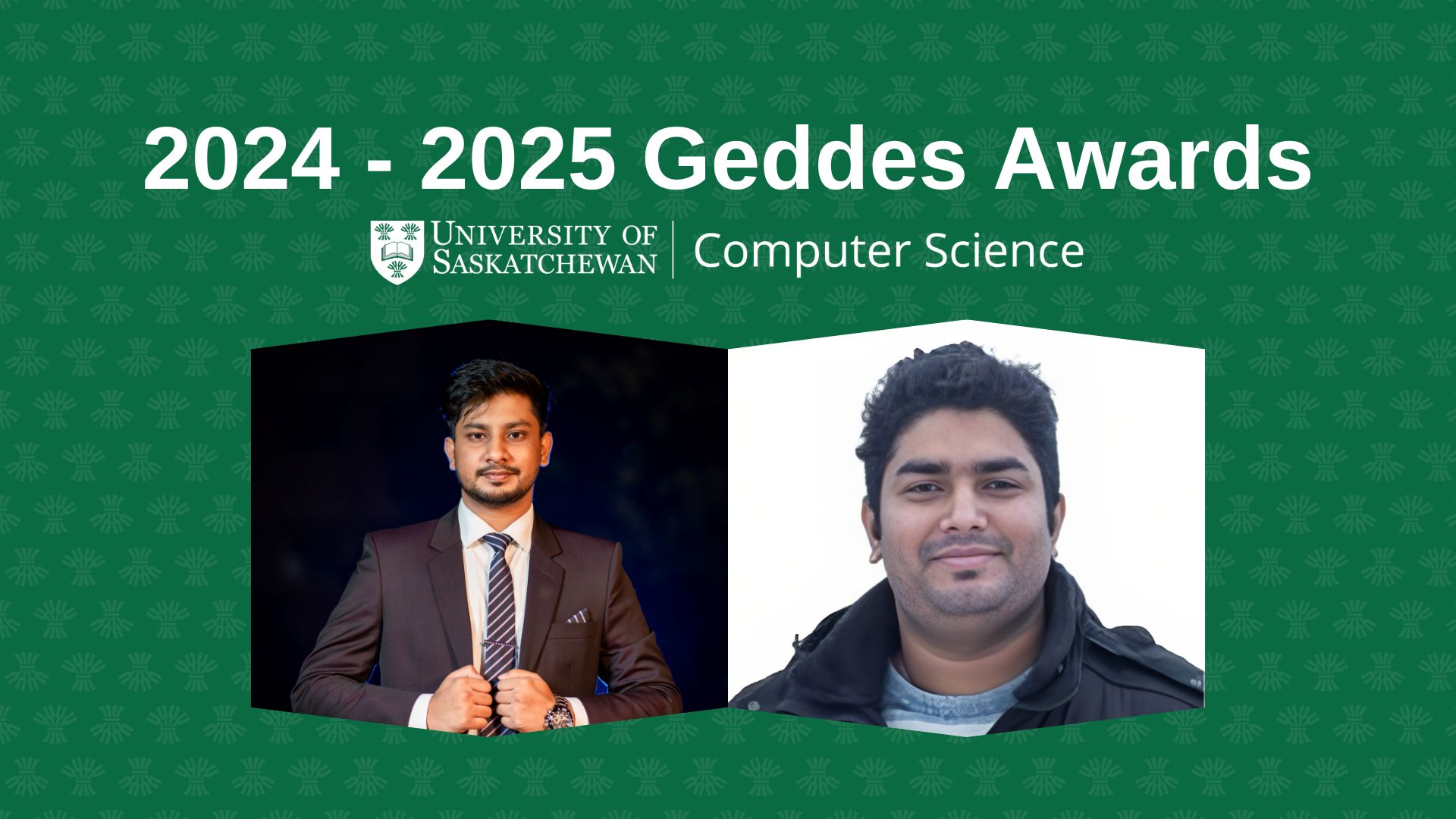
Graduate Students Recognized for Academic Excellence in Computer Science
The Geddes Awards are given to a Ph.D. and M.Sc. student currently in their graduate program. This award is based on high academic standing and research productivity.
M.Sc. Geddes Award Recipient: Md Zahidul Islam

Md Zahidul Islam is an M.Sc. student working on cutting-edge research in computer vision and deep learning under the supervision and mentorship of Dr. Mrigank Rochan. Specifically, Zahidul is researching video highlight detection—an area with far-reaching applications in media, entertainment, and beyond.
This research addresses a pressing need in today's video-driven world: the ability to effectively identify and extract important moments from lengthy videos. Using innovative approaches such as unsupervised learning and test-time adaptation, he aims to make video content more accessible and engaging. To date, their research has been recognized in esteemed venues such as WACV 2025 and the NeurlPS 2025 Workshop.
Prior to pursuing his master's at USask, Zahidul worked as a Lecturer in the CSE Department at IUT, one of Bangladesh's leading engineering universities. He also gained experience as an ML Engineer, where he was actively involved in building a large-scale Bengali OCR system.
Based on his believe that "fostering a strong academic and social network is just as important as technical advancements in shaping the future of AI", Zahidul has been an active member of the graduate student community. He currently serves as the VP Social for the Computer Science Graduate Council (CSGC) and has been involved in organizing the CSGC's annual Research Fest, an event with the mission of bringing together graduate students, faculty members, researchers and practitioners from academia and industry to discuss and present the research and innovations in different areas of Computer Science and Bioinformatics.
Zahidul aspires to pursue a career in academia or industrial research and development, driving forward AI technologies that solve real-world problems and make a meaningful impact.
Ph.D. Geddes Award Recipient: Md Shamimur Rahman

Md Shamimur Rahamn is a Ph.D. student in the Software Research (SR) Lab. Supervised by Dr. Chanchal Roy and Dr. Zadia Codabux, his areas of research are code review, social software engineering, and software maintenance.
Shamimur's PhD research investigates challenges in code review processes and proposes solutions to enhance both technical efficiency and social dynamics in software development. The studies address five key issues: reducing duplication in pull requests, improving reviewer assignment, optimizing file review order, enhancing the clarity of review comments, and mitigating incivility in discussions. By integrating automated tools, visualization techniques, and intelligent models, this research streamlines the code review process, reduces friction, and fosters a more inclusive and productive development environment. These contributions ultimately improve code quality, accelerate software development, and strengthen open-source project sustainability. From this thesis, three studies have already been published in top-tier venues: ICSME 2023, FSE 2024, and MSR 2025, highlighting the impact and significance of the research in the software engineering community.
Shamimur is also actively engaged in both professional service and leadership roles within the academic community. He has served on prestigious A*/A-ranked program committees, including MSR (2023-2025), ASE 2024, and EASE 2025. Additionally, as the current President of the Computer Science Graduate Council (CSGC), he has dedicated himself in advocating for graduate students and facilitating communication between them and the department.
His contributions have been previously acknowledged with several awards, including the SOAR Distinguished Research Award (2024) for his impactful research on incivility in code review discussions, the USASK Travel Award (2021, 2022, 2023) for active conference participation, and the Saskatchewan Innovation and Opportunity Award (2019).

